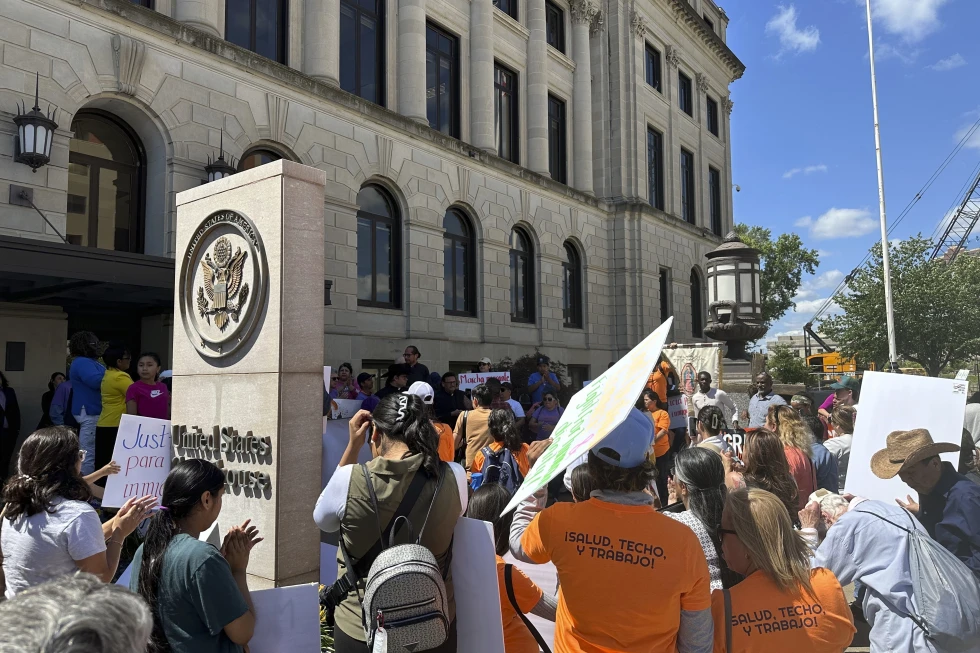The Supreme Court ruled against a woman from California who argued that her rights were violated when federal officials denied her husband entry into the country, partly due to how they interpreted his tattoos.
In a 6-3 decision split along ideological lines, the Court concluded that citizens do not necessarily have the right to influence federal decisions regarding whether immigrant spouses can legally reside in the U.S.
Justice Amy Coney Barrett, speaking for the majority of conservative justices, emphasized that although marriage is a fundamental right for citizens, it does not automatically grant them the authority to dictate how Congress exercises its power to admit or exclude foreigners.

Opponents of an Iowa immigration law rally outside the federal courthouse (Via Hayley Stubbs/Getty Images)
Justice Sonia Sotomayor, in a dissent joined by liberal justices, criticized the decision for downplaying the importance of marriage rights in immigration cases and argued that citizens should have the right to know specific reasons for their spouses’ denial of entry.
The ruling was a setback for Sandra Muñoz, a civil rights lawyer from Los Angeles, whose Salvadoran husband has been unable to live with her in the U.S. for nearly a decade.
They began the process for an immigrant visa after marrying in 2010, but faced a denial based on concerns that his tattoos indicated possible gang affiliation with MS-13, although the State Department did not provide detailed justification at the time.


























